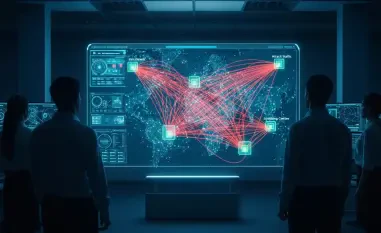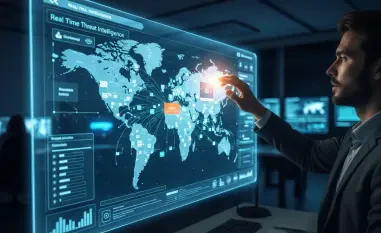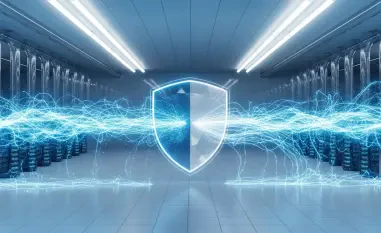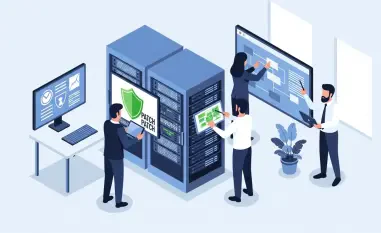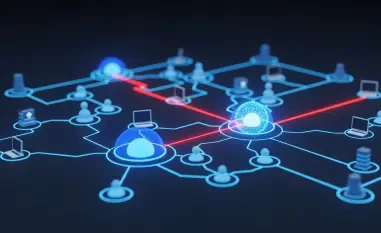In an era where cyber threats from nation-states loom larger than ever, with over 60% of global organizations reporting state-sponsored attacks in recent surveys, a pivotal gathering has emerged to tackle this escalating challenge head-on. The inaugural meeting of the RUSI Cyber Sanctions Taskforce, held in September, brought together government officials from the UK, US, and EU to dissect the role of sanctions in curbing malicious cyber activities. Hosted by the Royal United Services Institute, this event underscored a critical shift in global strategy, spotlighting sanctions as a tool to disrupt the intricate ecosystems behind cyber threats. The discussions offered a rare glimpse into how international powers are aligning to alter adversary behavior, setting the stage for a detailed exploration of insights and strategies that could redefine cyber defense.
Event Highlights: A Global Convergence on Cyber Sanctions
The RUSI Cyber Sanctions Taskforce meeting served as a platform for robust dialogue among policymakers and experts, focusing on the tangible impact of sanctions on nation-state cyber operations. Participants delved into the concept of “toxifying” malicious networks, a strategy where sanctions make operations politically and economically costly for adversaries. This approach, as highlighted during the sessions, forces underground actors to distance themselves from sanctioned entities, creating operational friction and reducing the allure of cybercrime.
Beyond theoretical discussions, the event showcased real-world implications through case studies and expert panels. A key point of emphasis was the integration of sanctions with broader tools of statecraft, such as diplomacy and intelligence operations. Attendees learned how combining these elements amplifies disruption, making it harder for threat actors to sustain their activities without facing significant repercussions.
The meeting also drew attention to the importance of targeting not just direct perpetrators but also enablers like technology suppliers and financial intermediaries. This broader focus, discussed extensively among the Taskforce members, aims to create a ripple effect across cyber ecosystems, discouraging support for malicious actors and reshaping the landscape of state-sponsored threats.
Key Strategies: Disrupting Cyber Ecosystems
One of the standout themes from the event was the strategic use of sanctions to increase the cost of cyber operations for adversaries. Experts at the meeting explained that while sanctions alone cannot halt attacks, they significantly raise the stakes by disrupting financial and operational networks. This disruption often compels adversaries to rethink their approaches, as the risk of exposure and penalty begins to outweigh potential gains.
Another critical strategy discussed was the growing trend of public attribution as a precursor to sanctions. Representatives from various countries noted a shift toward openly naming state actors behind cyber campaigns, a move that builds accountability and supports the imposition of targeted measures. This transparency, as shared during panel sessions, helps signal clear boundaries to adversaries and strengthens global resilience against cyber threats.
The Taskforce also explored innovative angles, such as focusing on cryptocurrency exchanges and service providers that facilitate cybercrime. These enablers, often overlooked in traditional sanction frameworks, were identified as key pressure points. By targeting such entities, sanctions can create widespread disruption, a point that resonated strongly with attendees seeking actionable solutions.
Comparative Insights: Diverse Approaches to Sanctions
A significant portion of the meeting was dedicated to comparing the cyber sanctions regimes of the US, EU, and UK, revealing distinct strengths and challenges. The US approach, established as a leader in this domain, was praised for its multi-pronged strategy that combines sanctions with diplomatic efforts and public advisories. Panelists highlighted how targeting persistent individuals rather than rebrandable organizations enhances the effectiveness of US measures.
In contrast, the EU’s framework, while comprehensive in design, faces hurdles due to the need for unanimity among member states. Discussions revealed that this requirement often slows down decision-making and limits the scope of sanctions, despite recent progress in public attribution by countries like France. The EU’s challenges underscored the need for better coordination and intelligence-sharing, a topic that sparked lively debate among attendees.
The UK, having developed its own regime post-Brexit, focuses on collaboration with allies and the private sector. However, limitations in pairing sanctions with criminal indictments due to high evidentiary standards were noted as a barrier. The meeting emphasized that UK sanctions primarily serve as tools for attribution and diplomatic signaling, offering a different perspective on how sanctions can be wielded effectively.
Challenges and Recommendations: Shaping the Future of Cyber Sanctions
Despite the promise of sanctions, the Taskforce meeting did not shy away from addressing inherent challenges. A recurring concern was the lack of consistent data to measure the impact of sanctions, such as frozen assets or reduced cyber activity. Participants stressed that without transparent metrics, assessing the true effectiveness of these measures remains elusive, prompting calls for improved monitoring mechanisms.
Political and legal barriers also surfaced as critical obstacles. In the EU, achieving consensus among diverse member states often dilutes the strength of sanctions, while in the UK, legal constraints hinder integration with law enforcement actions. These discussions painted a complex picture, urging policymakers to address enforcement gaps to maximize the deterrent effect of sanctions.
The event concluded with forward-thinking recommendations, including clearer strategic objectives for sanctions and a focus on cross-domain integration with diplomacy and intelligence. Targeting enablers like cryptocurrency platforms was repeatedly cited as a game-changer, alongside the need for enhanced data collection to evaluate outcomes. These proposals left attendees with a roadmap for refining sanctions as a tool for cyber deterrence.
Reflections on a Landmark Gathering
Looking back, the RUSI Cyber Sanctions Taskforce meeting marked a significant moment in the global fight against state-sponsored cyber threats, bringing clarity to the nuanced role of sanctions in disrupting malicious ecosystems. The event fostered a shared understanding among international stakeholders that while sanctions are not a silver bullet, they hold immense potential when strategically applied. Moving forward, the emphasis must be on implementing the Taskforce’s recommendations, particularly in refining objectives and bolstering data-driven assessments. Stronger coordination across borders and sectors will be essential to transform these insights into impactful policies, ensuring that sanctions continue to evolve as a cornerstone of cyber defense in an increasingly digital world.

